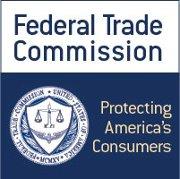
FTC Testifies before House Judiciary Committee’s Subcommittee on Regulatory Reform, Commercial and Antitrust Law about Antitrust Concerns and the FDA Approval Process
In testimony presented to the U.S. House of Representatives’ Judiciary Committee Subcommittee on Regulatory Reform, Commerical and Antitrust Law, the Federal Trade Commission described its efforts to stop anticompetitive conduct in the pharmaceutical industry.
Testifying on behalf of the FTC, Acting Director of the Bureau of Competition, Markus H. Meier noted that the 1984 Hatch-Waxman Act established a carefully balanced framework to facilitate introduction of lower-cost generic drugs in the marketplace while preserving incentives for innovation. However, some drug manufacturers have exploited certain features of the Act, with the result that their exclusive rights over branded drugs have extended well beyond the periods Congress provided to spur investments in innovation. At times, this has led to private windfalls at the public’s expense, according to the testimony.
“At the FTC, we’ve been fighting back against these efforts to keep prices artificially inflated,” the testimony stated. “In the years since the Hatch-Waxman Act was enacted, the Commission has pursued numerous antitrust enforcement actions involving both branded and generic firms.”
One area where the current regulatory system presents opportunities for branded firms to delay generic entry is in situations where the branded pharmaceutical is subject to a restricted distribution system, according to the testimony. The FDA is authorized to require Risk Evaluation and Mitigation Strategies, or REMS programs, which restrict distribution of certain pharmaceuticals in order to safeguard the public and prevent potential abuse or diversion. Even if the FDA does not require REMS for a particular drug, the manufacturer can voluntarily adopt a restricted distribution policy using exclusive contracts with distributors or specialty pharmacies to limit access to the product.
The testimony states that some branded manufacturers have used restricted distribution programs to delay generic entry in two ways: by refusing to provide samples to the generic firm, leaving it unable to perform the preclinical and clinical testing the FDA requires to establish that the generic version is biologically equivalent to the branded drug; or by preventing the generic from joining the existing REMS distribution system, so the FDA cannot approve the generic firm’s Abbreviated New Drug Application.
According to the testimony, one study estimates that Americans have lost $5.4 billion annually due to higher prices for prescription drugs because of REMS manipulation by branded drug companies.
The Commission’s concerns about REMS manipulation also extend to branded biologic drugs, which are regulated under the 2009 Biologics Price Competition and Innovation Act. According to the testimony, the FTC believes branded firms could frustrate the timely entry into the marketplace of biosimilar competitors by restricting access to product samples and throwing up roadblocks to the biosimilar firms’ efforts to meet the Act’s requirements.
According to the testimony, the Commission supports the goal of the Creating and Restoring Equal Access to Equivalent Samples Act of 2017, or CREATES Act, to protect the competitive process by eliminating incentives and opportunities for branded manufacturers to engage in manipulation of the REMS process to delay generic entry.
The Commission vote approving the testimony and its inclusion in the formal record was 2-0.
The Federal Trade Commission works to promote competition, and protect and educate consumers. You can learn more about how competition benefits consumers or file an antitrust complaint.
